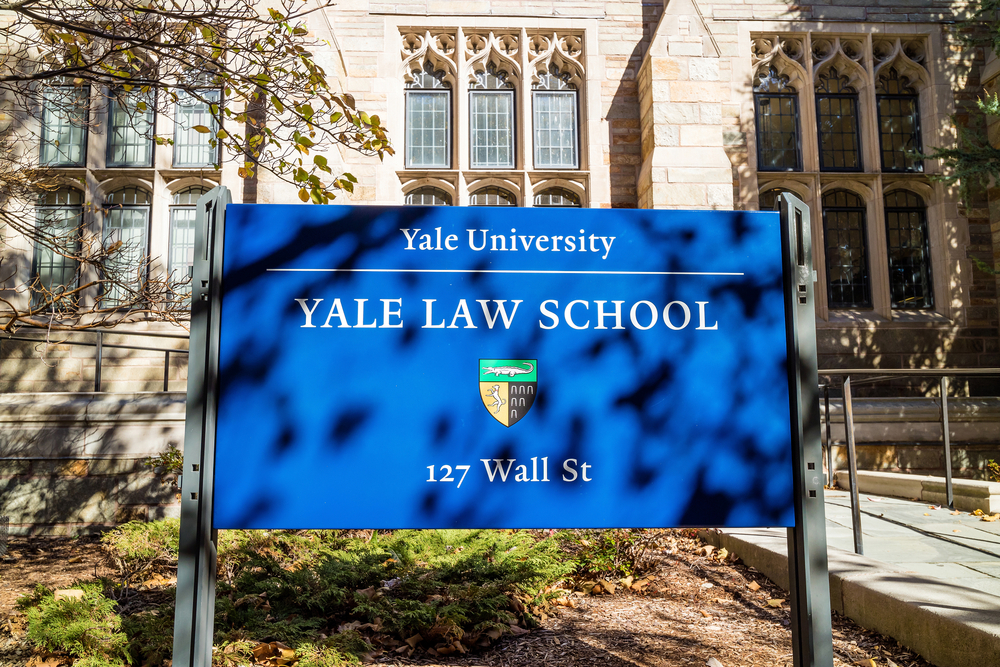U.S. Supreme Court
What will be the role of the U.S. Supreme Court in the midst of a presidency that is challenging constitutional limits, and at a time when the country is deeply ideologically divided?
The court provided initial answers to those questions in 2025, and so far they should be reassuring to conservatives and distressing to liberals. It was a year in which the impact of having a 6-3 conservative majority was evident time and again.
These are what I regard as the most important developments in the Supreme Court in 2025.
The shadow docket grows greatly
The Supreme Court always has had an emergency docket to hear requests such as those for last-minute stays of execution in death penalty cases. But it has grown greatly in recent years, and last year saw an exponential increase in orders from the shadow docket. In the October 2023 term, the court resolved 82 matters on its emergency docket. But in the October 2024 term, by June 27, 2025—the last day opinions were handed down—it had resolved 107 matters on its emergency docket. By the time the term officially ended when the new term began on Oct. 6, 2025, the court had decided 140 matters on its emergency docket.
Some of this increase is because of the many cases involving challenges to President Donald Trump’s administration’s initial actions that made it to the Supreme Court. But that does not explain all of the dramatic increase. I think that there is a simple explanation for why the shadow docket has grown: the court’s willingness to rule on matters on its emergency docket. The more the court is willing to give relief on an emergency basis, the more parties will go to the justices for stays of lower court decisions, such as of preliminary injunctions.
There is much to be concerned about in the growth of the shadow docket. Matters are decided without full briefing and without any oral argument. Yet in 2025, the Supreme Court indicated that lower courts were obligated to follow its shadow docket rulings. In several important cases, the court handed down orders without any written opinion, giving no guidance to the lower courts and making the decisions seem an arbitrary exercise of power since no reasons were given for the conclusions. In some cases, the court appeared to disregard detailed factual findings by lower courts and abandon the usual standard for emergency relief: the need for a showing of irreparable injury.
Trump wins
Trump had a very good year in the Supreme Court. In Trump v. CASA Inc. on June 27, the court ruled 6-3 that federal courts cannot issue nationwide injunctions. In an opinion by Justice Amy Coney Barrett, and over blistering dissents by Justices Sonia Sotomayor and Ketanji Brown Jackson, the court ruled federal courts lack statutory authority to issue universal injunctions. Justice Barrett said that since the High Court of Chancery in England could not issue such relief in the 18th century, there is no basis for believing that Congress meant to give this power to federal courts in the Judiciary Act of 1789. The dissenting justices objected to this methodology and to it making it much harder to invalidate unconstitutional presidency actions.
There have been dozens of rulings by the court on its emergency docket concerning lower-court preliminary injunctions against Trump administration actions. In almost every case, the Supreme Court—virtually always in a 6-3 ruling—has stayed the preliminary injunction and ruled in favor of President Trump. These decisions have included the Supreme Court staying lower court orders stopping the firing of agency officials, ordering the reinstatement of terminated federal grants, forbidding deportations to South Sudan of individuals with no contact with that country, preventing U.S. Immigration and Customs Enforcement agents from stopping people without reasonable suspicion, and keeping the State Department from requiring that passports list a person’s birth sex rather than gender identity.
The culture wars come to the Supreme Court
A number of the decisions this year have involved cultural issues that deeply divided the country. In United States v. Skrmetti, the court in a 6-3 decision upheld a Tennessee law that prohibits gender-affirming care for transgender youth. Twenty-seven states, all with Republican-controlled legislatures, have adopted such bans. Chief Justice John Roberts wrote for the majority and stressed the need for deference to the Tennessee legislature in making this choice concerning medical care for minors. Justice Sotomayor wrote a vehement dissent, joined by Justices Elena Kagan and Jackson, objecting to the court’s failure to protect a minority group from discrimination that will cause some great harm.
In Mahmoud v. Taylor, the court, again 6-3, ruled parents have the right to notice and to opt their children out of instructional material that they feel is inconsistent with their religious beliefs. The case involved the curriculum on sexuality, sexual orientation and gender identity that had been adopted in the Montgomery County, Maryland, public schools. Justice Samuel Alito wrote the opinion for the court, concluding that free exercise of religion was violated in not according parents the ability to exempt their children from this instruction. Again, it was Justice Sotomayor who wrote a vehement dissent, joined by Justices Kagan and Jackson. Justice Sotomayor said that never before had the court found that mere exposure to material violates free exercise of religion and expressed concern that this will create “chaos” in the public schools as parents will be able to remove their children from anything they find objectionable on religious grounds.
In a ruling on the emergency docket, in United States v. Shilling, the court, once more 6-3, stayed a district court’s preliminary injunction and allowed President Trump to bar transgender individuals from serving in the military. Neither the majority nor the dissenting justices wrote an opinion.
Some surprising wins for criminal defendants
In Glossip v. Oklahoma, the Supreme Court ordered a new trial in a death penalty case, holding that prosecutors violate due process if they use false testimony to gain a conviction. Applying Napue v. Illinois (1959), Justice Sotomayor, writing for the court, said that to establish a constitutional violation, a criminal defendant must show that the prosecution knowingly solicited false testimony or knowingly allowed it “to go uncorrected when it appear[ed].” If the defendant makes that showing, a new trial is warranted so long as the false testimony “may have had an effect on the outcome of the trial,”—that is, if it “in any reasonable likelihood [could] have affected the judgment of the jury.”
In Andrew v. White, the court held that it is clearly established law, which may be raised on habeas corpus, that due process is violated by the “introduction of unduly prejudicial evidence at a criminal trial.” The court overturned a murder conviction of Brenda Andrew in a case where the prosecutor elicited testimony about her “sexual partners reaching back two decades; about the outfits she wore to dinner or during grocery runs; about the underwear she packed for vacation; and about how often she had sex in her car.” In its closing statement, the prosecution again invoked these themes, displaying Andrew’s “thong underwear” to the jury and reminding them of her alleged affairs. In a per curiam opinion, the court, 7-2, said that the introduction of unduly prejudicial evidence violates due process and that this is sufficiently clearly established to be able to be raised on federal habeas corpus.
The tensions on the court
Not surprisingly, given the stakes of the rulings, there is the strong sense of justices being very angry with one another. It is clear that they have very different visions about the Constitution, the role of the court, and the direction of the country. All three of the liberal justices at times have written impassioned dissents. For example, in Trump v. CASA Inc., the decision ending nationwide injunctions, Justice Sotomayor wrote: “No right is safe in the new legal regime the court creates.”
And Justice Jackson lamented in her dissent, “The court’s decision to permit the executive to violate the Constitution with respect to anyone who has not yet sued is an existential threat to the rule of law.”
Especially in cases on the emergency docket, the liberal justices have written scathing dissents. In National Institutes of Health v. American Public Health Association, a 5-4 ruling staying a lower court’s preliminary injunction preventing the National Institutes of Health from terminating hundreds of millions of dollars of federal grants, Justice Jackson in dissent wrote: “Right when the judiciary should be hunkering down to do all it can to preserve the law’s constraints, the court opts instead to make vindicating the rule of law and preventing manifestly injurious government action as difficult as possible. This is Calvinball jurisprudence with a twist. Calvinball has only one rule: There are no fixed rules. We seem to have two: that one, and this administration always wins.”
Conclusion
There is a strong sense that 2025 was the first chapter in how the Supreme Court will deal with this Trump administration. There also is a strong sense of how much it matters to have a court with six very conservative justices and three very liberal ones.
Erwin Chemerinsky is dean of the University of California at Berkeley School of Law. He is an expert in constitutional law. He’s also the author of many books, including his most recent ones: Campus Speech and Academic Freedom: A Guide for Difficult Times and The Supreme Court October Term 2024: Taking Sides.




